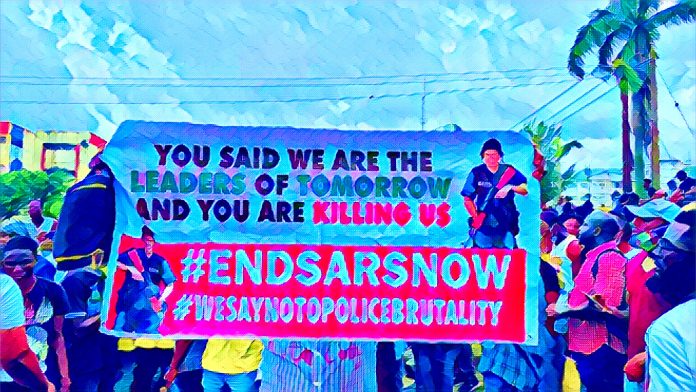The Economic Community of West African States (ECOWAS) Court of Justice has delivered a landmark decision, ruling that Nigerian security forces violated the human rights of participants in the #EndSARS protests of October 2020. This verdict comes in response to a lawsuit filed by three Nigerian women who actively participated in the demonstrations.
Lawsuit Alleges Brutality and Demands Accountability
The lawsuit centered on allegations of excessive force used by Nigerian security forces against peaceful protesters. The claims included the use of live ammunition and a lack of proper investigation into these human rights abuses. The lawsuit further demanded compensation for the victims. Obianuju Udeh, Perpetual Kamsi, and Dabiraoluwa Adeyinka, the three women who filed the suit, reported physical and emotional trauma as a result of the protests.
The ECOWAS Court, in a unanimous decision, found the Nigerian government in violation of several articles enshrined in the African Charter on Human and Peoples’ Rights (ACHPR) during the #EndSARS protests. These violations included the right to life, security of person, freedom of expression, assembly and association, prohibition of torture, and the right to an effective remedy.
The court specifically highlighted the government’s failure to protect protesters from harm and uphold their right to peaceful assembly. Furthermore, the judgment criticized the lack of investigation into allegations of torture and brutality committed by security forces.
Court Orders Compensation and Demands Action
In a significant move, the ECOWAS Court ordered the Nigerian government to pay each of the three women who filed the lawsuit N2 million (approximately USD 4,400) in compensation for the human rights violations they endured. Additionally, the court mandated the government to conduct a thorough investigation into the abuses that occurred during the protests and hold those responsible accountable through prosecution.
The ECOWAS Court’s decision injects fresh momentum into the ongoing debate regarding police brutality in Nigeria. The #EndSARS protests erupted in October 2020 in response to a series of killings by the Special Anti-Robbery Squad (SARS), a Nigerian police unit with a well-documented history of violence and extortion. Though the protests resulted in the disbanding of SARS, concerns about police brutality in Nigeria remain prevalent.
The ECOWAS Court’s ruling is likely to exert significant pressure on the Nigerian government to address police violence and prioritize improvements in its human rights record. The decision also serves as a beacon of hope for victims of human rights abuses, demonstrating the possibility of holding governments accountable in a regional court.
Source: Vanguard



